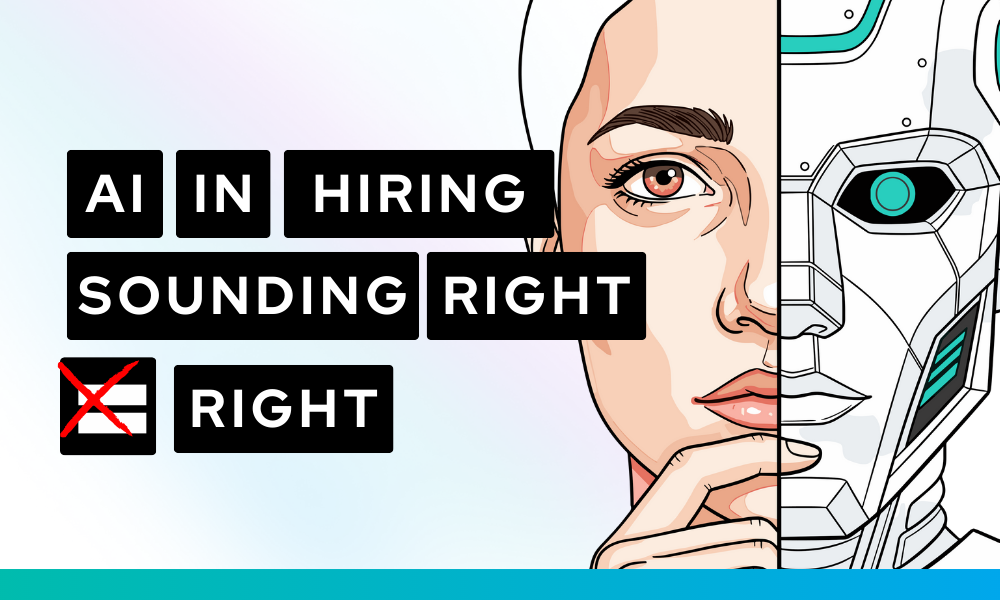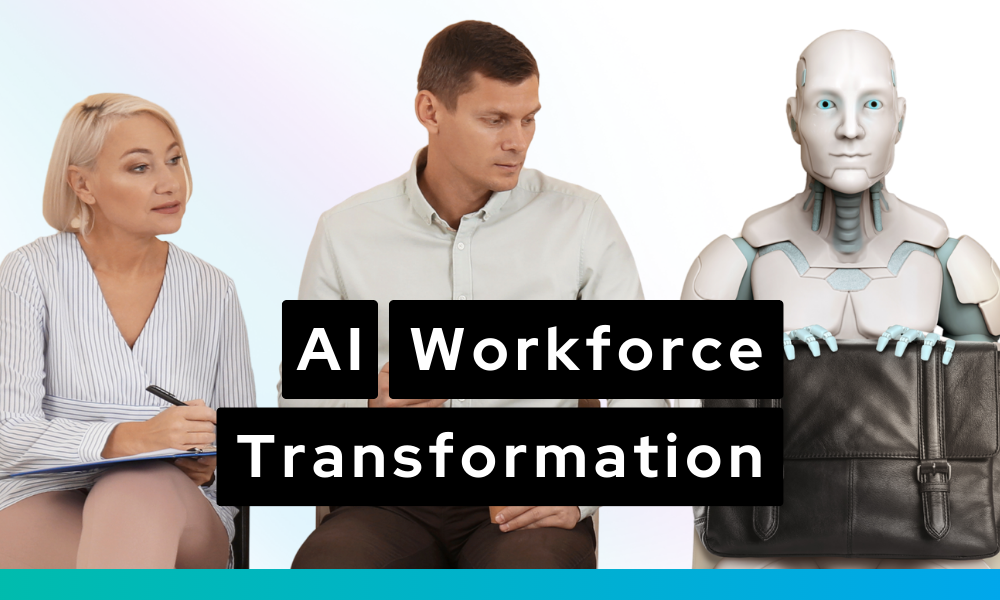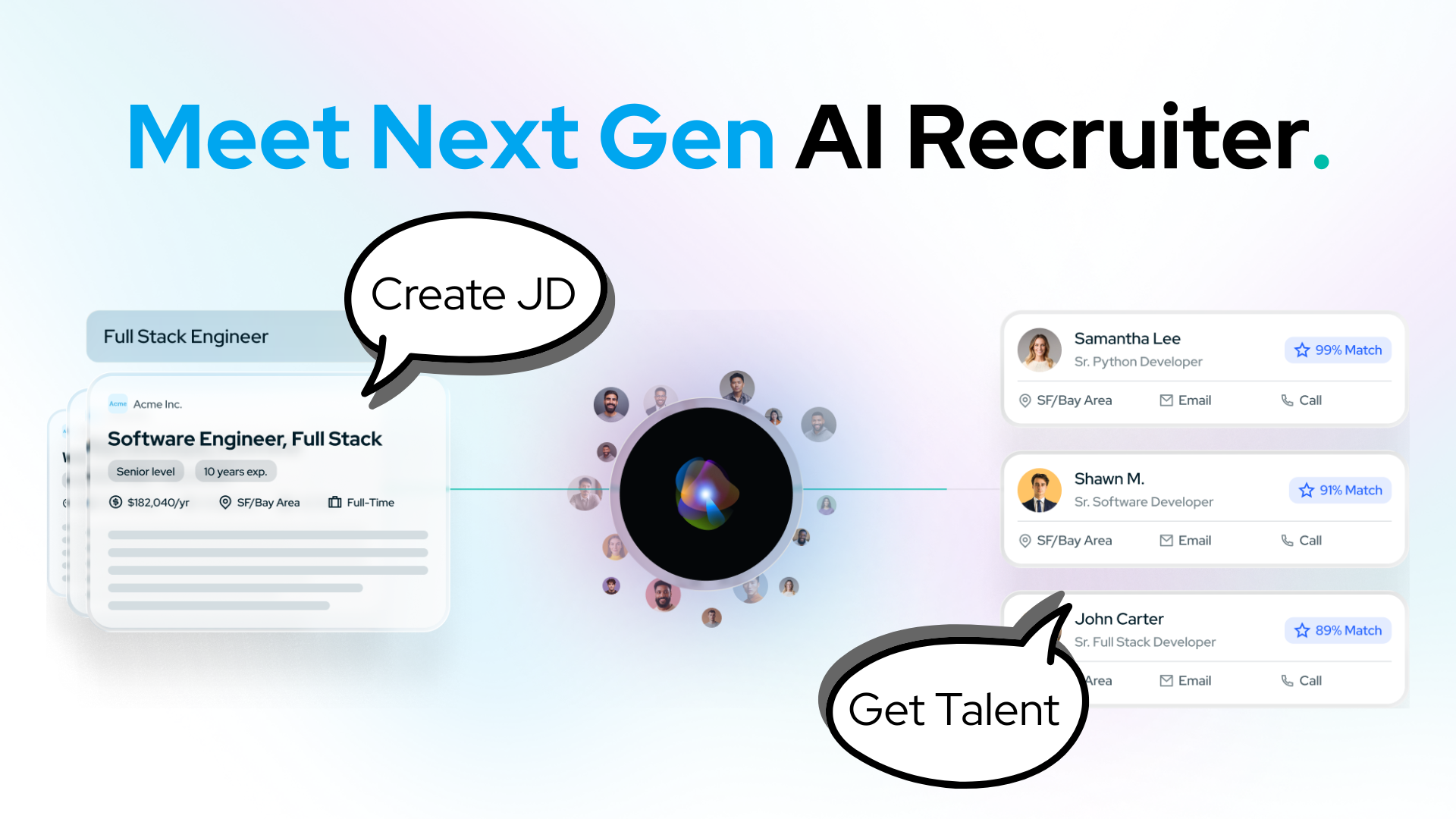
Make talent quality your leading analytic with skills-based hiring solution.

The job market is undergoing a paradigm shift that prioritizes diversity and inclusion in recruitment strategies. This change reflects a growing desire for more equitable workplaces.
AI diversity recruiting can expedite this transformation by helping companies mitigate unconscious biases in job descriptions, resume screening, and candidate evaluations.
Companies can create a hiring process incorporating various perspectives and experiences by combining AI and human judgment.
Although people often use diversity and inclusion interchangeably, they’re distinct concepts. Understanding this difference is essential for effective workplace implementation.
While diversity looks at workforce composition, inclusion is about creating an environment that supports everyone’s participation.
Diversity hiring, and inclusion are two sides of the same coin. Having a diverse workforce (a variety of people) is essential, but with an inclusive culture (where everyone feels valued), companies will reap the full benefits.
Diverse talent pools are crucial for organizational success for several reasons:
Companies with top rankings in racial/ethnic and gender diversity see higher financial returns compared to industry medians.
Research by Deloitte highlights that inclusive cultures are more likely to be innovative, tackle problems from multiple angles, and develop better solutions.
Inclusive environments also create constant streams of innovation because employees feel empowered to share ideas and find support for them.
Furthermore, employees who feel valued and respected for their unique qualities stay with the company longer because they will likely be happy and engaged.
Both age groups benefit from leveraging each other’s strengths and experiences.
An AI-driven talent acquisition system embeds DEI in recruiting activities to create fairer and more equitable hiring across the entire funnel.
By focusing on candidates’ skills and capabilities, such platforms ensure hiring decisions are based on solid, unbiased data.
By evaluating candidates solely on their responses and skills, HR teams can implement merit-based assessments that align perfectly with DE&I recruiting objectives.
The system can then shortlist candidates based on their performance and fit using AI tools that sift through responses to pinpoint the most suitable applicants.
Such a structured approach directly supports diversity in recruitment—from the initial screening to the final hiring stages.
Interviews (whether through live coding, virtual one-on-one, or asynchronous video formats) are designed to be inclusive and accessible.
The best systems also allow organizations to review departmental diversity and measure DE&I retention rates to assess the impact of their inclusion efforts.
AI enhances talent sourcing by ignoring demographic information, which can cause bias in different ways.
For example, a name that sounds stereotypically male might be subconsciously favored for a leadership role. In contrast, AI relies solely on resumes without names or other identifiers to reduce this bias.
AI can be programmed to assess skills objectively regardless of where someone went to school or their previous employer.
AI can be programmed to consider broader data points (like a candidate’s online portfolio or project history) to get a more complete picture.
AI-enabled screening creates a more objective evaluation process focused on qualifications. All candidates go through the same initial screening process with consistent criteria.
This eliminates the possibility of unintended judgments based on factors unrelated to the job —such as accents or clothing choices — which can creep in during human screening.
AI also analyzes resumes and online profiles for skills and experience mentioned in the job description without considering factors like names, genders, or ages.
By evaluating candidates based on quantifiable skills and achievements extracted from resumes and online data, AI can even rank them based on their fit for the role. This helps qualified individuals stand out regardless of their background.
AI makes implementing diversity and inclusion recruitment easier by equipping companies with the necessary tools to reduce bias and foster equality throughout the hiring journey.
Glider’s approach to AI-powered talent acquisition serves as a blueprint for incorporating DE&I into every recruitment step, ensuring a focus on skills and performance. Try it today.

AI can sound responsible while getting the logic wrong. Most conversations about AI in hiring fixate on bias, hallucinations, or compliance. That is where lawsuits land and where headlines cluster. Those risks are real. They are also incomplete. Often, the quieter the problem, the more dangerous it becomes. Many AI systems are better at sounding […]

TL;DR AI is no longer something people use. It’s doing the work. And Gen Z notices this first because they sit closest to the tasks AI replaces most quickly. That concern is not resistance. It is pattern recognition. AI Workforce transformation is happening. Fast! HR does not own AI. But when AI decisions are made […]

For decades, recruitment has looked the same. Recruiters still spend hours sourcing candidates, scheduling interviews, conducting screenings, and managing endless administrative work. The process is slow, inconsistent, and no longer sustainable in a highly competitive talent market. This is exactly the problem AI Recruiter was built to solve. What if hiring could run itself? The […]